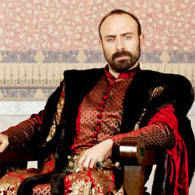0



















| Thumbs Up |
| Received: 44,956 Given: 45,037 |

Bosnian war 20 years on: peace holds but conflict continues to haunt
Two decades after the conflict started, Bosnia is divided more than ever as bitter memories permeate society
Julian Borger in Sarajevo
guardian.co.uk, Wednesday 4 April 2012 23.00 BST
In the last heavy storm of the winter, so much snow built up on the roof of Skenderija, one of Sarajevo's most important commercial centres, that it caved in, crushing cars, offices and shops. The cause was evident: no one had got round to clearing the roof until it was too late. Nonetheless, the authorities blamed the war.
Bosnia's war, which brought the worst atrocities Europe had seen since the Nazi era, began 20 years ago on Thursday. It has been over for more than 16 years, in which time the country has been more peaceful that even the optimists dared hope. Yet it continues to haunt the blighted country – as a constant excuse for dysfunction, as a bitter memory, a psychic scar and a malaise. At the anniversary of the conflict the internationally enforced peace settlement still holds, but there is little else to celebrate.
Bosnia is more divided now than two decades ago. Intermarriage between the three principal ethnic groups – Muslim Bosniaks, Catholic Croats and Orthodox Serbs – is far less common that it was before the war, and children in Bosnia's two constituent entities, a Bosniak-Croat federation, and a Serb republic (Republika Srpska) are now growing up with minimal contact with each other.
The once cosmopolitan capital, Sarajevo, is now almost monolithically Bosniak. One of the dwindling number of exceptions, General Jovan Divjak, an ethnic Serb who defied the sectarian logic in 1992 to lead the defence of Sarajevo against Serb nationalist forces, summed up the prevailing mood. "The hate is worse now than it was just after the war. It's not getting better. It's getting worse," he said despondently.
One of the few bright spots in the gloomy approach to the war's 20th anniversary has come from an unexpected corner. The men who took up arms to fight each other in 1992 have lately become exemplars of collaboration across the "inter-entity line".
The bad news is that they been brought together by the country's poverty. The soldiers' plight is a typical story of contemporary Bosnian politics.
In 2010, the parliament decreed that all soldiers over 35 on both sides of the line should be pensioned off, but failed to pay them their pensions because squabbles over which ethnic group should control which ministry prevented the formation of the government for the next two years.
The Bosniak-Croat federation scraped together about Ł150 a month for their veterans, but the Serb republic refused, leaving its soldiers, who it once glamorised as holy warriors, destitute. The only people to lift a finger to help them were the men they once fought against.
"Who better than those who were in the trenches, the people who were shooting each other, to lead the way?" said Semsadin Pojata, a former Bosniak sergeant who fought in the besieged enclave of Gorazde during the war, and who led a fundraising drive for the Serb veterans. "If we can do it, why not students, why not governments? And no one can accuse [us] of disloyalty. No one has more right to do this than the warriors."
Pojata, who now lives on the banks of the Miljacka river, near the old front line in eastern Sarajevo, appealed to federation veterans and says 90% responded with a donation of Ł4 or more. He then got in touch with a Serb veterans leader, Rade Dzeletovic, to help find the most needy cases.
"We all share the same problems – struggling to survive," Dzeletovic said by phone from the town of Zvornik. "No one can label us as traitors, as we are the ones who fought the war. That, however, is in the past. It does not mean we have to forget what has happened, but we need to look into the future. The war is over. We all have children to take care of."
Trapped
Dzeletovic pointed out that there had been other such acts of solidarity. When railway workers went on strike recently in the Serb republic, their colleagues in the federation supported them. The reconciliatory attitude, however, has not spread to government or Bosnia's ethnically based parties, who rely on identity politics and sectarian tensions to corral votes.
"People, on all sides, are forgotten by the politicians," Dzeletovic said. Pojata agreed: "The politicians want us to live in 1992, but I don't want to live in 1992."
It is a sentiment frequently echoed on all sides. People said they felt trapped by the grip the parties had on the country.
Nevena Novakovic, a 22-year-old student, is part of a small minority of Serbs who have remained in Sarajevo.
She attends the city's university rather than the exclusively Serb college in nearby Pale, the wartime Serb nationalist stronghold. She has Bosniak and Croat friends and gets outstanding grades, but faces chronic problems getting funding.
"The [Serb-run] municipality says I can't get a scholarship if I am not a party member," said Novakovic. Up to now she has refused, preferring to try to make ends meet by working in a bar in her home district of Lukavica.
"If you want to make something in Bosnia you have to go to the government and to the party. It's sad. I don't want to leave but I will maybe end up going to Europe."
Breaking the stranglehold of the parties will be hard because the ethnically defined character of the state is enshrined in the 1995 Dayton peace accord. The US-brokered deal won agreement from the country's wartime leaders to stop the killing in return for entrenching their positions in a state built on sectarian institutions and boundaries.
Like a hastily applied plaster cast, it healed the wounds at the expense of setting Bosnia's bones at distorted, disfiguring angles.
No one expected the Dayton mould to last, but it has proved hard to break. Constitutional reforms that would have transformed Bosnia were defeated by two votes in the national parliament in April 2006, and that turned out to be the high point of the reform movement. Since then, the sectarian politicians, particularly the hardline Serb leader, Milorad Dodik, have dug in their heels. Dodik has repeatedly defied the international community, using every means at his disposal to undermine the authority of the Bosnian state, in favour of his Serb republic. His goal is not outright independence but a loose confederation in which the entities voluntarily delegate minimal powers to a weak national government.
"A few years after the war, there was a political thaw," said one western diplomat in Sarajevo. "The Republika Srpska recognised the genocide had been committed, and people started doing business together. Now the pendulum has swung the other way. At the moment, we are in a negative spiral and we have not got to the bottom yet."
There are hopes that a shared desire to join the European Union will ultimately cause Bosnian Serb voters to lose patience with Dodik, but for the time being, as one diplomat put it, "the EU's gravitational pull is still too weak".
In some ways, Europe represents a Catch-22 for Bosnia. Its people will not begin to feel its benefits in the face of nationalist obstructionism.
In 2009, the European court of human rights in Strasbourg ruled against the Bosnian constitution on the grounds that it made no allowance for members of small minorities, such as Jews or Gypsies, to attain high office. The reforms ordered by the court have still not been implemented.
The economic costs of division are even higher. To give just one example, Bosnia cannot export fruit and vegetables to the EU without a national food standards agency, but the Serb leadership have obstructed its creation, insisting on two entity-based agencies.
Some have suggested that Bosnia's neo-colonial status as an international protectorate is stopping its leaders taking full responsibility for the country's fate. If the Office of the High Representative (OHR) charged with oversight of the Dayton accord were dissolved, the argument runs, the nationalist leaders would have no one else to blame for the country's underdevelopment.
To test that theory, the OHR has deliberately used a light touch in recent years, refraining from using the tools provided by Dayton to intervene in Bosnian governance.
Complete abolition, however, has so far been resisted by the US, Britain, Turkey and Japan, for fear that an end to its mandate could trigger an upsurge in Serb separatism and even a return to conflict.
With the 20th anniversary of the outbreak of war, the air of dysfunction has infected even the preparations for the commemoration.
One of Sarajevo's biggest tourist draws is the tunnel under the airport that served as the city's only lifeline during three years under Serb siege. One end of the tunnel was in the basement of a house on the edge of the runway, which the owner had turned into a little museum. Last year, the local municipality closed it down for lack of the right licence but has failed to open anything in its place.
Salem Mujezinovic, who runs the garage next door, spends much of his time turning away busloads of tourists eager to see a remnant of the war. He lost a brother in the fighting and one of his legs was blown off by a mortar, but he sees no problem in fixing the cars of local Serbs. "They come here. I go over there. It's not a problem," Mujezinovic said, before sounding a typically Bosnian refrain. "The problem is politicians. This country is not close to what it was supposed to be."
Help support Apricity by making a donation














| Thumbs Up |
| Received: 53 Given: 9 |

"The problem is politicians."
Summarizes everything in one sentience.
















| Thumbs Up |
| Received: 4,199 Given: 1,401 |

Dodik is not a hardliner or a nationalist, he just insists on implementation of Dayton agreement.
What is not writen in the text is that Serb republic has less authorities than those guaranteed by Dayton agreement, Dodik tries to preserve the current situation and get the authorities back if possible.
The fault for destabilisation of BiH is on Bosnian Muslem politicians. They can not understand that centralized Bosnia ruled by them is unacceptable to Serbs and Croats.














| Thumbs Up |
| Received: 53 Given: 9 |

Preserving the status quo in which he has sold everything not nailed to the floor (and nails but that might change with an extra mandate). And how can transfer of food and business agencys on state level "endanger the heavenly people" when the employment rate there is 1 Serb, 1 Croat, 1 Bosniak with rotating chairmanship :
And the ban on fruit and vegetables export will hurt more Serbs rather than Bosniaks who are concentrated around citys...
There are currently 1 users browsing this thread. (0 members and 1 guests)
Bookmarks